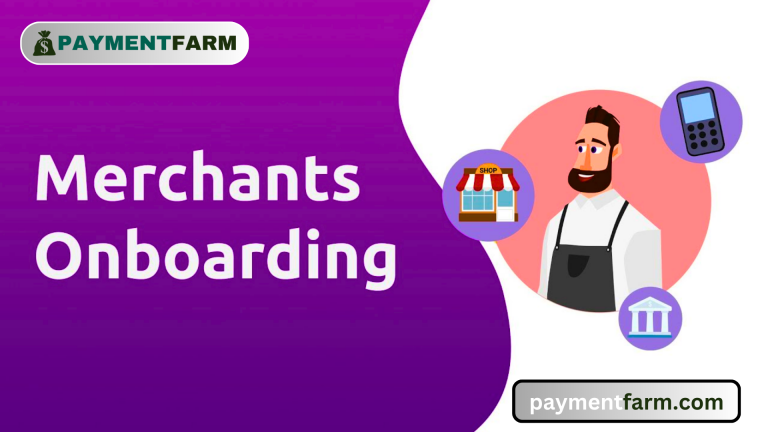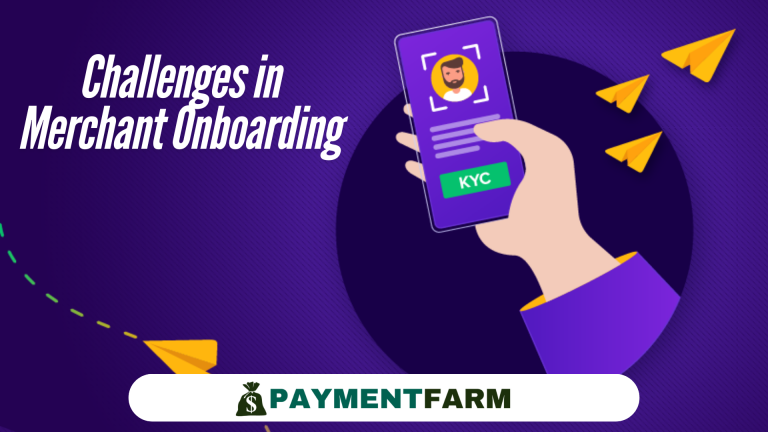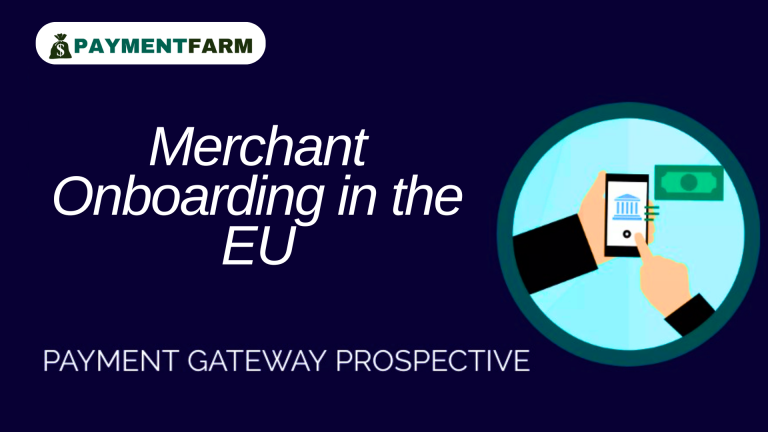An efficient merchant onboarding process is indispensable these days in the fast-paced, digital world for businesses, payment service providers, and even e-commerce platforms. A streamlined approach ensures not only compliance but also expedites merchant account setup, ultimately ensuring greater user satisfaction. Let’s dive into the essentials of merchant onboarding, from the earliest steps to best practices, and explore the tools and technology that drive the industry forward.

Understanding Merchant Onboarding
Merchant onboarding refers to the process of registering, verifying, and integrating merchants onto a payment platform or gateway. The process mostly includes the following: Merchant account onboarding, Merchant onboarding compliance, KYC verification, and finally merchant onboarding documentation.A successful online merchant onboarding process ensures a smooth experience for merchants while protecting the platform from fraud. It includes multiple steps, such as merchant verification, payment gateway onboarding, and activation of the merchant account.
Key Player and Parts in Merchant Onboarding
For a business to successfully execute merchant onboarding, there is an essential role of several critical key players involved and how to interact between them. For a well-functioning environment of safe payment processing operations, such parties include Merchants. Merchants refer to companies, retailers, or service providers that need to accept payments from customers. They partner with the service providers or gateways in exchange for the processing of the transactions through whichever means and channels are available online or in person and through their mobile devices.
- Payment Service Providers: PSPs can be termed as companies offering payment processing solutions to companies. The PSP handles the technological aspects of transaction processing and ensures conformity to industry guidelines and regulations, such as authentication, clearing, and settlement. A PSP may even offer supplementary services, which include fraud detection and risk management.
- Payment gateways: Payment gateways are where the transaction data is securely transferred from the business systems to either the PSP or the acquiring bank, such as an online store, a POS, or a mobile application. The function of payment gateways includes the encryption of sensitive information such as credit card data for safe transfer during transactions.
- Acquiring banks: Acquiring banks, more commonly known as “merchant acquirers”, are financial institutions that collaborate with PSPs to process transactions and settle them on behalf of businesses. They underwrite merchant accounts, assess business risk, and ensure compliance to regulations.
- Card networks: Card networks comprise organizations that determine the rules and guidelines for transactions between cards. They enable the communication and settlement of a transaction between an acquiring bank and an issuing bank, or the bank which issued the customer’s payment card. The issuing banks
- Issuing Banks: The term issuing banks can be simply understood as the “issuers”, being the financial institutions issuing a card for payment – it is credit, debit, or prepaid cards issued to a customer. They authorise a transaction by ensuring the availability of sufficient funds or credit of the customer and ensure its eventual transfer to the acquiring bank.
- Regulators: The regulatory and industry bodies that include the Payment Card Industry Security Standards Council (PCI SSC) make and enforce regulations and standards to govern payment processing. The goal is always to protect customers and ensure the integrity of the payment ecosystem.
Key Steps in the Merchant Onboarding Flow
- Merchant Registration: The process starts with the registration of the merchant online, where they input basic information about the business. This includes legal information, contact details, and the type of industry. When businesses are based in the EU, a merchant registration platform that is compliant with the regional laws is important.
- Merchant Verification Process: Verification includes the legitimacy of the merchant and the level of risk. The onboarding of the merchant includes KYC documents, tax identification, and proof of business operations.
- Risk and Fraud Prevention: Merchant onboarding risk assessment is important in terms of identifying risks that could be encountered. Merchants onboarding fraud prevention tools enable secure transactions and minimize vulnerability.
- Compliance Check: Compliance with merchant onboarding is important to abide by regulatory requirements such as the GDPR in Europe and PCI DSS for payment card industry data security.
- Payment Gateway Integration: The process for the payment gateway onboarding once ascertained is integrating them via APIs and ensuring the payment gateway has integration with their systems. Activation of a merchant’s account and account approval. This is after having complied with the merchant onboarding criteria, that is, activating their accounts.
Challenges in Merchant Onboarding
The multi-step merchant onboarding process often poses challenges such as delays, compliance issues, and security concerns. Businesses must address these by adopting merchant onboarding automation tools and platforms that streamline workflows.

Solutions for Simplified Merchant Onboarding
Modern merchant onboarding platforms leverage AI and APIs to automate processes. For example:
- Automated Merchant Onboarding: Reduces manual interventions and speeds up the merchant account activation process.
- Merchant Onboarding Software and SaaS Solutions
These solutions provide end-to-end management, from data collection to merchant onboarding verification. - Payment Gateway Integration and Onboarding APIs:
Facilitate seamless integration with minimal technical effort.
Best Practices for Merchant Onboarding
Clear Documentation Requirements
Outline and communicate all the documentation requirements of merchant onboarding beforehand.
Automate Where Possible
Merchant onboarding SaaS solutions minimize human error and time delay.
Focus on Security
Implement merchant onboarding security features to establish trust and prevent fraud.
Tailored Solutions for E-Commerce
E-commerce platforms can avail themselves of the specific merchant onboarding required by online businesses focused on scalability and speed.
What paperwork is required for merchant onboarding by businesses?
Before engaging the merchant onboarding process, a business should prepare the documents and materials required. Collecting all the necessary materials before beginning can speed up the process and minimize possible delays in what is a time-consuming process.
Key documents and materials that companies should get ready for include:
Documentation for business registration
Copies of the articles of association, certificates of incorporation, and other pertinent documents that attest to the company’s legal existence are examples of the registration documents for the firm.
Tax identification number
The business tax identification numbers, such as the EIN in the United States, but it may be termed different in other countries.
Ownership information
Information about the ownership structure of the business, including details about the owners, partners, or directors. Personal identification documents, such as government-issued IDs, passports, or driver’s licenses, for key shareholders may come in this category.
Statements of finance
Current financial statements that include cash flow, income, and balance sheets can indicate the company’s health.
Bank account information
The details on the business’s bank account. These include the account number and the routing number as well as the name and address of the bank.
Business licences and permits
Copies of all relevant business licenses, permits or certifications needed to operate within your industry or jurisdiction.
Business website and online presence
The information relating to your business’s website, online store, or mobile app, including URLs, along with the products or services offered.
Payment processing history
If the company has a prior record of processing payments, include copies or summaries of past volumes of transaction volumes, chargeback ratios, and other relevant material.
Business plan and revenue projection
A business plan showing projections for revenue and volumes of transaction can be required, especially with a start-up or little history of operating in the business.
Compliance documentation
Documentation concerning your business’s compliance to industrial regulatory or standards, including payment card industry data security standard, general data protection regulation or other data protection and privacy policies.
Merchant Onboarding in the EU
The merchant onboarding in the EU requires compliance with stricter regulations. Using a merchant registration platform tailored to European laws simplifies processes while ensuring adherence to GDPR and AML standards.

Conclusion
Efficient merchant onboarding solutions are vital for businesses aiming to attract and retain merchants while maintaining security and compliance. By adopting automated merchant onboarding tools, focusing on risk management, and leveraging modern technology, businesses can streamline their merchant onboarding flow, ensuring a smooth and secure experience for all parties involved.
Whether for e-commerce, payment gateway integration, or global merchant onboarding, adopting these best practices is key to achieving success in today’s digital landscape.
Faqs
What is merchants onboarding?
Merchants onboarding is essentially a process of enrolling and credentialing businesses in payment platforms or gateways to meet requirements for compliance, security, and functionality.
Who are the key players in merchants onboarding?
Key players include merchants, PSPs, payment gateways, acquiring banks, issuing banks, card networks, and regulators.
What are the different steps involved in the merchants onboarding process?
Merchant registration
Verification (KYC and Compliance checks)
Risk assessment and fraud prevention
Payment gateway integration
Account approval and activation
What are the documents required for merchant onboarding?
Business registration certificates
Tax ID numbers
Ownership details
Financial statements
Bank account information
Compliance documentation (e.g., GDPR, PCI DSS)
How can businesses make the process of merchant onboarding easier?
Using automated merchants onboarding tools, APIs for payment gateway integration, and merchants onboarding SaaS solutions.
